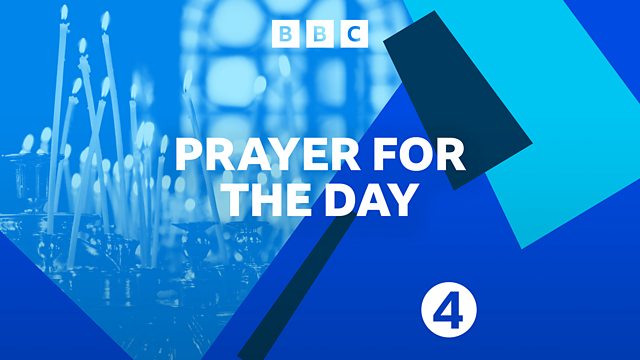Main content

07/08/2015
A spiritual comment and prayer to begin the day with Andrew Graystone.
Last on
Fri 7 Aug 2015
05:43
ΒιΆΉΤΌΕΔ Radio 4
Script
Good morning.
In many cultures and religions touch is used as a sign of passing on blessing. Β Hands laid on the head, or a ceremonial kissing of hands or feet are a ritual symbol of power and authority being handed from one person to the next. Β It happens in our own coronation service. Β And it happens in the ordination of a priest or deacon in most churches. Β
The Hungarian concert pianist Andor FΓΆldes was 16 years old when an older musician Emil von Sauer, who had been Franz Lisztβs last surviving pupil, came to Budapest and asked FΓΆldes to play for him. After listening to him for a long time, von Sauer rose to his feet, took the young manβs head into his hands, and kissed him on the forehead. βMy son,β he said, βwhen I was your age I became a student of Liszt. He kissed me on the forehead after my first lesson, saying, βTake good care of this kissβit comes from Beethoven, who gave it to me after hearing me play.β I have waited for years to pass on this sacred heritage, and now I feel you deserve it.βΒ
Weβre living in a culture where some forms of touch are necessarily treated with caution. Β But in an age where fear and suspicion surround so many relationships, and digital communication trumps face to face contact, I sometimes wonder if weβre at risk of quite literally losing touch β of neglecting the God-given power of human hands to bless, support and comfort?
Creator God, we give you thanks that we live our lives not only in spirit and thought but in flesh and blood. Β As we learn to communicate through digital channels, help us not to lose touch with our humanity, but to prioritise those with whom we share flesh and blood, houses and streets, bread and wine. Amen.
In many cultures and religions touch is used as a sign of passing on blessing. Β Hands laid on the head, or a ceremonial kissing of hands or feet are a ritual symbol of power and authority being handed from one person to the next. Β It happens in our own coronation service. Β And it happens in the ordination of a priest or deacon in most churches. Β
The Hungarian concert pianist Andor FΓΆldes was 16 years old when an older musician Emil von Sauer, who had been Franz Lisztβs last surviving pupil, came to Budapest and asked FΓΆldes to play for him. After listening to him for a long time, von Sauer rose to his feet, took the young manβs head into his hands, and kissed him on the forehead. βMy son,β he said, βwhen I was your age I became a student of Liszt. He kissed me on the forehead after my first lesson, saying, βTake good care of this kissβit comes from Beethoven, who gave it to me after hearing me play.β I have waited for years to pass on this sacred heritage, and now I feel you deserve it.βΒ
Weβre living in a culture where some forms of touch are necessarily treated with caution. Β But in an age where fear and suspicion surround so many relationships, and digital communication trumps face to face contact, I sometimes wonder if weβre at risk of quite literally losing touch β of neglecting the God-given power of human hands to bless, support and comfort?
Creator God, we give you thanks that we live our lives not only in spirit and thought but in flesh and blood. Β As we learn to communicate through digital channels, help us not to lose touch with our humanity, but to prioritise those with whom we share flesh and blood, houses and streets, bread and wine. Amen.
Broadcast
- Fri 7 Aug 2015 05:43ΒιΆΉΤΌΕΔ Radio 4

